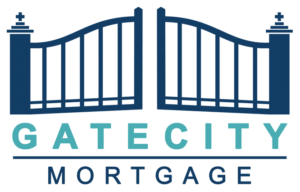Mortgage Basics
Jump in and get an overview on common mortgage terms
Application Checklist
Applying for a mortgage can be overwhelming, but being prepared can make the process smoother. This checklist covers essential documents you need, such as your property details, income verification, sources of funds, and debt obligations. Providing accurate and complete information promptly can help speed up your application. From sales contracts and pay stubs to tax returns and bank statements, having everything ready will ensure you meet the requirements and move forward with confidence. Remember, every situation is unique, so additional documentation might be necessary.
Credit
The Fair Credit Reporting Act (FCRA) ensures that consumer reporting agencies provide accurate and complete information to businesses evaluating your credit application. Key rights under the FCRA include receiving a copy of your credit report, knowing who accessed your report, and obtaining a free report if your application is denied due to CRA information. You can dispute inaccuracies in your report, and if not resolved, add a summary explanation. Understanding these rights helps protect your credit reputation and ensures fair credit evaluations.
Closing Costs
Closing costs are essential payments needed to finalize a home loan, separate from your down payment. These costs cover various services, including inspections, title insurance, and appraisal fees. Additionally, expenses such as attorney fees, moving costs, and prepaid interest may arise. Understanding and preparing for these up-front expenses can help ensure a smoother home-buying process. By knowing what to expect, you can plan your finances better and avoid surprises at closing.
Appraisals
Understanding the appraisal process is crucial when buying or selling a home. An appraisal estimates a property’s fair market value and is typically required by lenders to ensure the loan amount doesn’t exceed the property’s worth. Appraisers use three methods to determine value: Cost Approach, Sales Comparison Approach, and Income Approach. While the mortgage company owns the appraisal, it can be transferred to another lender. Additionally, sellers set the property’s market value, often with the help of a real estate agent performing a Comparative Market Analysis. Assisting the appraiser by providing relevant details and documents can ensure a thorough assessment.
Private Mortgage Insurance
Private Mortgage Insurance (PMI) is often required by lenders when the down payment on a conventional mortgage is less than 20% of the home’s purchase price. PMI protects the lender in case of borrower default. Borrowers can pay PMI in various ways, including upfront premiums, higher monthly payments, or financing a lump-sum premium into the loan. PMI can help borrowers qualify for larger loans, though the costs vary based on the insurer and specific plan. Understanding how PMI works, how it’s paid, and the cancellation rules under the Homeowners Protection Act of 1998 is crucial for homebuyers.
Refinancing
Refinancing your mortgage can be a smart financial move to lower monthly payments, reduce interest rates, and improve your debt-to-income ratio. Understand when to refinance, whether it’s beneficial if you plan to move soon, and the costs involved. Consider factors like quality of service and cost transparency when choosing a lender. Gate City Mortgage Company offers exceptional personalized service, guiding you through the refinancing process with confidence. Learn how to decide if paying points to lower your interest rate is worth it and the importance of locking in your loan rate.






